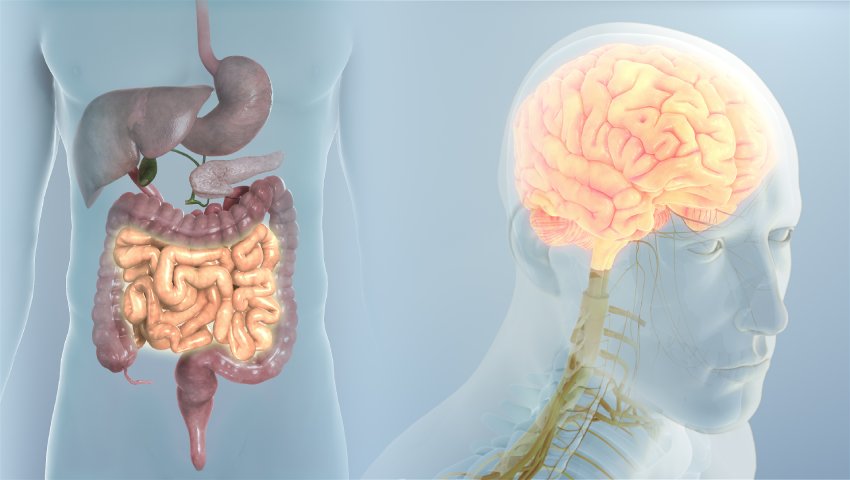
- 30/04/2025
- Dr. Srivatsan Gurumurthy
- 0 Comments
- Blog
How Stress Affects Your Digestive Health?
Stress is not just a mental or emotional issue. It affects the body too—especially the digestive system.
In today’s busy life, many people suffer from stomach problems. Bloating, gas, pain, and irregular bowel habits are common complaints. Often, no physical cause is found in tests. Dr Srivatsan Gurumurthy, one of the leading Surgical Gastroenterologists in Chennai, sees many patients with stress-linked gut issues at GEM Hospital. This blog explains how stress impacts digestion and what you can do about it.
Gut and Brain: A Two-Way Link:
Your brain and gut are closely connected. This is called the gut-brain axis. The vagus nerve is the main communication link between the brain and digestive organs.
The enteric nervous system (often called the second brain) controls digestion. It works hand-in-hand with the brain. When you are stressed, signals from the brain to the gut can get disturbed. This causes symptoms like bloating, pain, or altered bowel habits.
What Stress Does to Your Digestive System?
- Gut Movement Changes: Stress can make the gut move too fast or too slow. This leads to diarrhoea, constipation, or both.
- Extra Stomach Acid: Stress can increase acid production. You may feel heartburn, acidity, or reflux. It may even lead to gastritis.
- Imbalance in Gut Bacteria: The gut has friendly bacteria that help in digestion. Stress can disturb this balance. This may cause infections or inflammation.
- Fewer Digestive Enzymes: Under stress, your body may produce fewer enzymes. This affects nutrient absorption and leads to discomfort.
- Inflammation in the Gut: Chronic stress can increase inflammation in the intestines. This can worsen IBS (Irritable Bowel Syndrome) or IBD (Inflammatory Bowel Disease).
Stress-Related Digestive Disorders Seen in Practice:
Dr Srivatsan sees many digestive issues that are either triggered or worsened by stress. Some common ones are:
- Irritable Bowel Syndrome (IBS): This is one of the most common stress-related gut problems. Patients report gas, cramps, and changes in bowel habits.
- Functional Dyspepsia: Patients feel full even after small meals. There is discomfort, but no cause is found in tests.
- Gastritis, GERD, and Ulcers: These are often linked to long-term stress. Symptoms include acidity, burning, and upper abdominal pain.
Dr. Srivatsan, a Robotic and Laparoscopic Surgeon in Chennai, uses advanced tools and techniques to manage such conditions. His approach combines clinical judgement, imaging, and stress management.
What Research Says?
Studies from Harvard Health and other medical journals say the gut is very sensitive to stress. Research shows that stress activates neuroimmune pathways. This affects gut function. Cortisol, the body’s stress hormone, changes gut movement, increases acid, and reduces immunity. Stress may also increase gut permeability or “leaky gut”. This lets harmful substances enter the blood and causes inflammation.
How to Manage Stress for Better Gut Health?
Managing stress helps reduce digestive symptoms. Here are some tips:
- Practice Mindfulness and Meditation: These techniques calm the mind and improve gut-brain communication.
- Do Yoga and Breathing Exercises: These relax your body and increase vagus nerve activity. This helps digestion.
- Sleep Well and Stay Active: Lack of sleep and inactivity worsen stress and digestion. Aim for 7–8 hours of sleep and regular walking or exercise.
- Medical Treatment: For serious conditions like IBS, GERD, or ulcers, you may need medicines.
- Eat a Balanced Diet: Add fibre-rich foods, fresh fruits, vegetables, and probiotics to your meals. Drink enough water.
- Try Psychological Therapy: Cognitive Behavioural Therapy (CBT) and counselling can help. When combined with medical treatment, results are often better.
When to See a Specialist?
Don’t ignore symptoms for too long. Visit a specialist if you have:
- Weight loss without reason
- Blood in stool
- Severe or lasting stomach pain
Dr. Srivatsan Gurumurthy is a trusted Laparoscopic and Robotic Surgeon in Chennai. He treats stress-linked digestive problems with advanced, minimally invasive methods.
At SS Surgical Clinic, he offers personalised care based on the patient’s condition and needs.
Final Thoughts:
Your mind and gut are deeply linked. If you ignore your mental health, your stomach may suffer—and vice versa. Stress may not always show up clearly. But its effect on your digestion is very real.
If your stomach problems continue even after diet changes or medicines, consider looking into stress as a possible cause. You don’t have to suffer in silence. Dr Srivatsan Gurumurthy offers personalised and holistic care. With his expert guidance, you can get long-lasting relief and regain your digestive health.
Facing gut issues that won’t go away?
Book a consultation with Dr Srivatsan Gurumurthy today. Get a complete solution that treats both your mind and gut, only at SS Surgical Clinic, Chennai.
